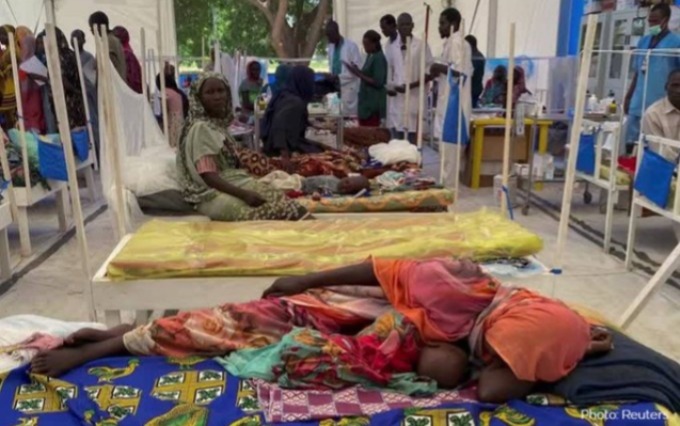More than 170 people have died from a cholera outbreak in Sudan within a week, health officials reported on Tuesday, as the country’s crumbling infrastructure continues to deteriorate under the weight of a brutal, two-year-long civil war.
According to Sudan’s health ministry, over 2,700 infections and 172 deaths were recorded in just seven days, with Khartoum State accounting for 90 percent of the cases. The outbreak follows widespread destruction of the capital’s water and electricity networks, largely blamed on drone strikes by the paramilitary Rapid Support Forces (RSF), who have been locked in conflict with the Sudanese army since April 2023.

Cholera, while endemic to Sudan, has surged to alarming levels due to the collapse of water, sanitation, and healthcare systems. Recent attacks on infrastructure—including three major power stations—have left large swathes of the capital without power or clean water. In their absence, many residents have turned to untreated water from the Nile River, increasing the risk of infection.
Doctors Without Borders (MSF) said water treatment stations in Khartoum have stopped functioning due to lack of electricity. “Water treatment stations no longer have electricity and cannot provide clean water from the Nile,” said MSF’s medical coordinator in Khartoum, Slaymen Ammar.

In Omdurman, part of greater Khartoum, resident Bashir Mohamed told AFP that his family has been living without electricity for nearly two weeks. “We now fetch water directly from the Nile, buying it from donkey carts that bring it in barrels,” he said.
The outbreak has overwhelmed Al-Nao Hospital in Omdurman, one of the few operational facilities in the capital. A doctor there confirmed that the majority of cholera cases are linked to residents drinking contaminated water from the Nile due to non-functional water pumping stations.
The Emergency Response Room (ERR) in the area has called for additional volunteers to help manage the crisis. “The number of patients exceeds the hospital’s capacity,” said one ERR member anonymously. “Some patients are lying on the floors in hospital corridors. There are not enough medical staff.”
Cholera is a highly treatable and preventable disease when clean water and prompt medical care are available. But in Sudan, ongoing conflict has devastated the healthcare sector. According to the World Health Organization, the war has pushed Sudan’s health system to the brink, with nearly 90 percent of hospitals at some point forced to shut down due to fighting, looting, or destruction.
Since the outbreak of war between the RSF and the army, tens of thousands have been killed and around 13 million people displaced. The conflict has led to what humanitarian agencies describe as the world’s largest displacement and hunger crisis.
As Sudan enters its third year of war, the cholera outbreak adds a deadly layer to the country’s humanitarian catastrophe, exposing the dire need for urgent international intervention and relief.









